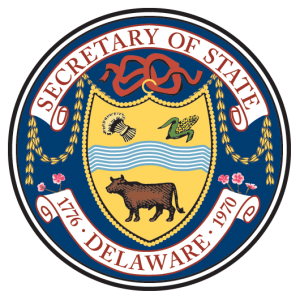DOVER, DE (October 25, 2022) – Delaware will hold its 23rd National Drug Enforcement Administration (DEA) Prescription Drug Take Back Day on Saturday, October 29, 2022. Delawareans can discard their expired or unused medications at locations statewide between 10:00 a.m. and 2:00 p.m. There will also be overdose response training with free Narcan available at select locations.
Organized nationally by the DEA, Prescription Drug Take Back Day is operated locally by the Division of Public Health (DPH). The biannual event is aimed at reducing the risk of prescription medications being diverted for misuse and has resulted in nearly 100,000 pounds of medication being collected since 2010. Properly discarding unused medications through this event is an important ongoing activity in the effort to address the nationwide opioid epidemic. Doing so reduces the risk of addiction by keeping prescription medications out of the hands of people who may misuse, abuse, or divert them, and helps reduce the risk of drug overdoses.
“The Drug Take Back Days are a convenient way for Delawareans to remove expired, unwanted or unused medications from their homes, and dispose of them safely and securely,” said Department of Health and Social Services (DHSS) Secretary Molly Magarik. “These collection events and the permanent medicine drop-off sites across our state also are critical to reducing the potential for misuse, abuse or diversion, and, thereby, reducing the risk of people overdosing or dying. We all can do our part by removing unnecessary medications from our homes.”
According to the 2020 National Survey on Drug Use and Health, many misused prescription drugs were obtained from family and friends, often from home medicine cabinets. A total of 4,645 pounds of unneeded medication was collected at 27 Delaware locations on the last Drug Take Back Day event on April 30, 2022.
In addition to the sites participating in National Prescription Drug Take Back Day activities, there are permanent medicine drop-off locations available year-round. In addition to medicine drop-off sites, DPH and community partners also distribute Deterra bags (medication deactivation bags) to use at home. For a list of permanent collection sites and how to get a free disposal bag, visit www.helpisherede.com/understanding-addiction/safe-drug-storage-and-disposal.
The medications to be disposed of at the Take Back Day locations must be in a container such as a pill bottle, box, blister pack, or zipped plastic bag, with personal information removed. Liquid medications must be in their original containers. Besides medications, vape pens and e-cigarettes will be collected if the batteries are removed. There are 22 locations participating in the National Prescription Drug Take Back event currently. You can find the list of locations here: https://www.dea.gov/takebackday.
To further enhance overdose prevention and education efforts, two of the DEA National Prescription Drug Take Back locations (Middletown and Milford police departments) will also be offering overdose response training and Narcan distribution to the public. It is recommended that anyone who has an opioid prescription or has friends and/or family who use opioid prescriptions or illicit drugs receive this training and the overdose reversal medication, Narcan. For other community trainings and where you can get free Narcan go to: https://www.helpisherede.com/overdose-prevention.
For more details about the National Prescription Drug Take Back Day, visit https://helpisheredrugtakebackday.gatsbyjs.io/drug-take-back-day.
If you or a loved one is struggling with addiction in Delaware, call DHSS’ 24/7 Crisis Hotline to be connected to treatment and recovery options. In New Castle County, call 1-800-652-2929. Or in Kent and Sussex counties, call 1-800-345-6785. For free 24/7 counseling, coaching, and support, as well as links to mental health, addiction, and crisis services call the Delaware Hope Line at 1-833-9-HOPEDE. To search online for treatment and recovery services in Delaware or nearby states, visit HelpIsHereDE.com.
###
The Delaware Division of Public Health (DPH), a division of the Delaware Department of Health and Social Services, is a nationally accredited public health agency recognized by the Public Health Accreditation Board for its outstanding dedication to driving change through innovation. DPH is committed to improving the quality of the lives of Delaware’s citizens by promoting health and well-being, fostering self-sufficiency, and protecting vulnerable populations.
A person who is deaf, hard-of-hearing, deaf-blind or speech-disabled can call the DPH phone number above by using TTY services. Dial 7-1-1 or 800-232-5460 to type your conversation to a relay operator, who reads your conversation to a hearing person at DPH. The relay operator types the hearing person’s spoken words back to the TTY user. To learn more about TTY availability in Delaware, visit http://delawarerelay.com.
 “Fewer prescriptions written and fewer pills dispensed mean fewer chances for Delawareans to become addicted to opioids, or for these dangerous drugs to be diverted for illegal use,” said Secretary of State Jeff Bullock. “The regulations we enacted last year to put limits on opioid prescriptions seem to be working. We hope that in the long term these trends will mean a reduction in opioid addiction and deaths.”
“Fewer prescriptions written and fewer pills dispensed mean fewer chances for Delawareans to become addicted to opioids, or for these dangerous drugs to be diverted for illegal use,” said Secretary of State Jeff Bullock. “The regulations we enacted last year to put limits on opioid prescriptions seem to be working. We hope that in the long term these trends will mean a reduction in opioid addiction and deaths.”